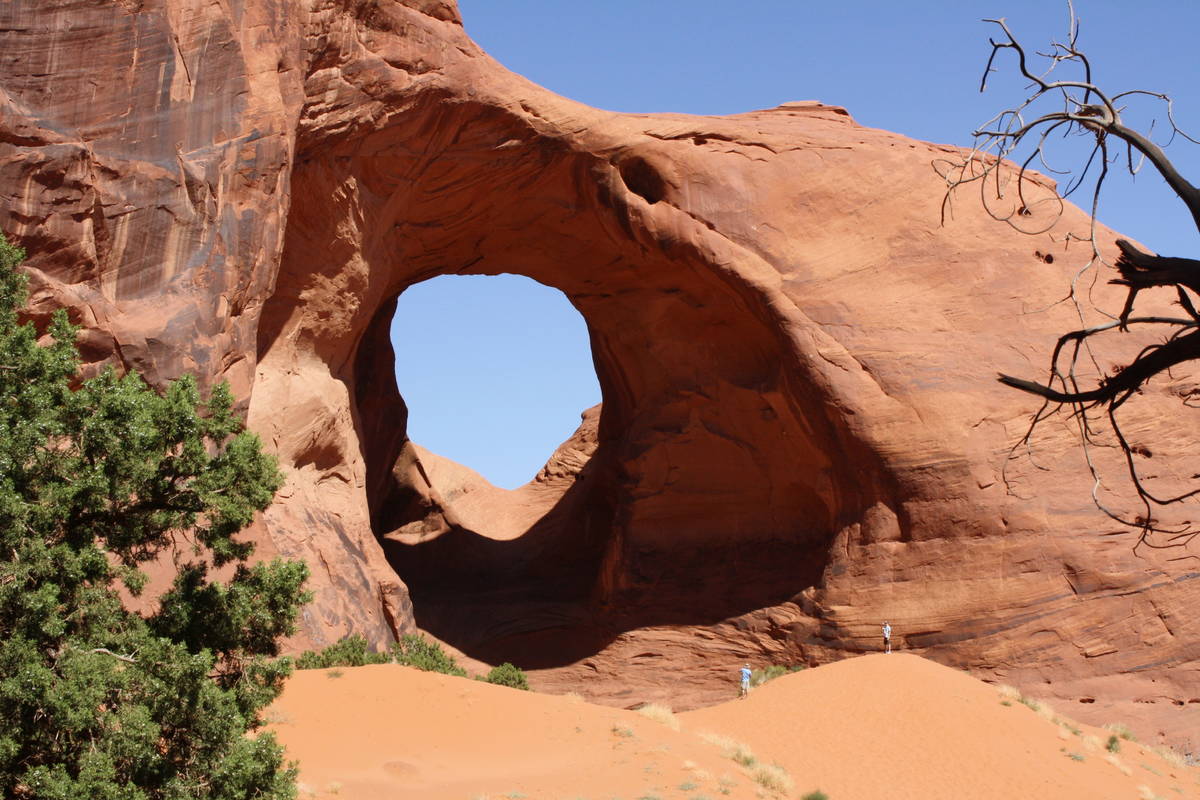The best way to experience the spectacle of Monument Valley

One of the most picturesque places in the world is practically at our doorstep — the Monument Valley Navajo Tribal Park. Located on the border of Utah and Arizona, the park boasts buttes, mesas, spires, pinnacles and arches, arranged in some of the finest panoramic views on Earth.
You’ve no doubt seen the photographs, or scenes from the movies that were filmed here, but seeing the place firsthand is a once-in-a-lifetime experience, well worth the six- or seven-hour drive.
The park was established in 1958 and encompasses 91,696 acres, all within the 16-million acre Navajo Reservation. The Diné, as the Navajo people refer to themselves, have called this region home for more than 400 years. Prior to that Ancestral Puebloans lived here.
You can get a few classic views just driving around the area or by taking in some popular viewpoints, but most of the real treasures are off-limits to visitors traveling on their own. The absolute best way to discover the place is by taking a tour with an approved Navajo guide. These Jeep tours run different lengths, and if you have the time I highly recommend doing a full-day trip.
The guides are extremely knowledgeable and not only inform you about the historical and cultural significance of the area, but will take you to archaeological and filming locations and to the most stunning rock formations. There are also plenty of photo opportunities to get out of the vehicle and visit the sites up close.
Monument Valley is favorite scenery for TV and Hollywood films. Movies that have used the park include some of John Ford’s classic Westerns, such as “Stagecoach,” “She Wore A Yellow Ribbon” and “Fort Apache,” all starring John Wayne, and the latter co-starring Henry Fonda. Newer classics such as “Thelma and Louise,” “Forrest Gump” and “Back to the Future III” also used the magnificent backdrop.
Monument Valley Navajo Tribal Park is open the year round. At the visitor center the elevation is about 5,200 feet. Average daily high temperatures in August are around 91 degrees, and in September 83 degrees.
Due to COVID-19 concerns, the Navajo Nation is currently operating in “Yellow Status,” which means the Navajo Parks and Recreation is open at 50 percent of maximum occupancy. Masks are mandated throughout the park. Always book your stay and your tour guide before arriving in the park, as they fill up fast. For a list of approved Navajo tour guides and further information, contact https://navajonationparks.org/, or 435-727-58740. For lodging information visit or www.gouldings.com.